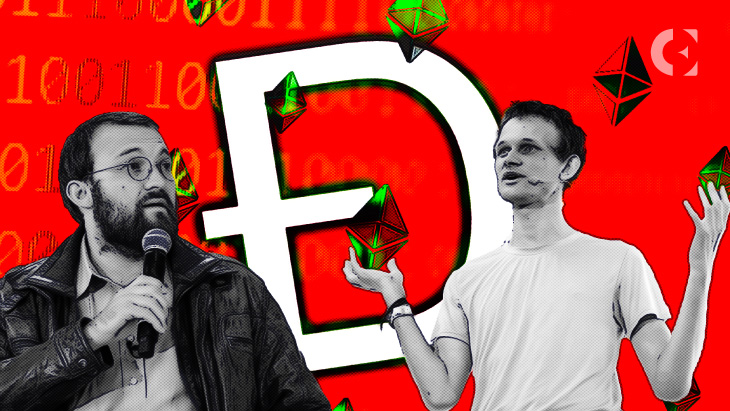- Cardano’s founder bashes Vitalik for saying that solo validators should be censored.
- Hoskinson says that enabling lone censors to impact the network will ultimately cause demise.
- Experts have disagreed on the moral propriety of non-mining Bitcoin nodes rejecting certain transactions.
Charles Hoskinson, the founder of Cardano, criticized comments made by Vitalik Buterin. The Ethereum founder was criticized for suggesting that the network should largely permit single validator censorship.
Furthermore, Hoskinson argued that this would be counter-productive and lead to the network becoming less decentralized.
This is not how decentralization works. If we allow validators to be censored, it will be the minority validators that can censor the majority. This will lead to two things: first, more centralization; and second, less security.
In a recent interview with Forbes, Buterin said that he would be okay with solo validator censorship if it led to broader adoption of the Ethereum network.
Hoskinson claims that Buterin’s way of thinking is consistent with the reasoning behind the “DAO hack” and that the Ethereum founder is transgressing moral bounds to advance cryptocurrency adoption.
In response to Buterin’s remarks, an ADA stake pool operator (SPO) stated that the crypto media would not be as supportive if Hoskinson made the same statements.
According to the commenter Morgan Stanley, 65% of Ethereum’s nodes are housed in the cloud, with Amazon Web Services (AWS) hosting half of them. Furthermore, almost 60% of the network’s validators are controlled by just four businesses.
Notably, this argument is not exclusive to Ethereum, experts have disputed whether it is morally acceptable for non-mining Bitcoin nodes to refuse to approve specific transactions and whether these nodes eventually matter.
Additionally, it is also important to remember that the Ethereum and Cardano communities are still at odds, and Hoskinson never misses an occasion to bash Ethereum PoS.
Disclaimer: The information presented in this article is for informational and educational purposes only. The article does not constitute financial advice or advice of any kind. Coin Edition is not responsible for any losses incurred as a result of the utilization of content, products, or services mentioned. Readers are advised to exercise caution before taking any action related to the company.







